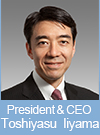
The Nomura Institute of Capital Market Research (NICMR) was established in 2004 as an institution that specializes in research on the systems, structures, and trends in financial and capital markets and financial institutions. NICMR has steadily carried out those activities for more than 20 years.
In accordance with the spirit of the Nomura Group Purpose "We aspire to create a better world by harnessing the power of financial markets," NICMR will further expand its research activities based on the core principles of "neutrality," "professionalism," and "practicality."
The financial and capital market environment in Japan and around the world is undergoing dramatic change. In Japan, unabated population aging is having a significant impact on the nation’s social and economic structure. Pension system reform and more sophisticated asset management are needed to enable more effective use of Japan’s largest financial resource—the ¥2,000 trillion in households’ financial assets.
While the Japanese economy as a whole is emerging from deflation, the deflationary trend in financial services continues, as evidenced by the commission-free stock trading services offered by some online brokers. Financial institutions are under pressure to provide added-value while adopting new methods, such as the use of evolving digital technology.
In addition, responding to the need to promote discussions regarding sustainability in a multilateral and prompt manner, NICMR established the Nomura Research Center of Sustainability in December 2019. The Center is conducting research from the perspective of how capital markets should be utilized to solve global sustainability-related issues.
The history of "Nomura’s research" dates back to the establishment of an in-house research department in 1906. As successors to that progressive spirit, all of us here at NICMR will continue our activities with the intent of contributing to realization of the Nomura Group Purpose of creating a better world by harnessing the power of financial markets.

